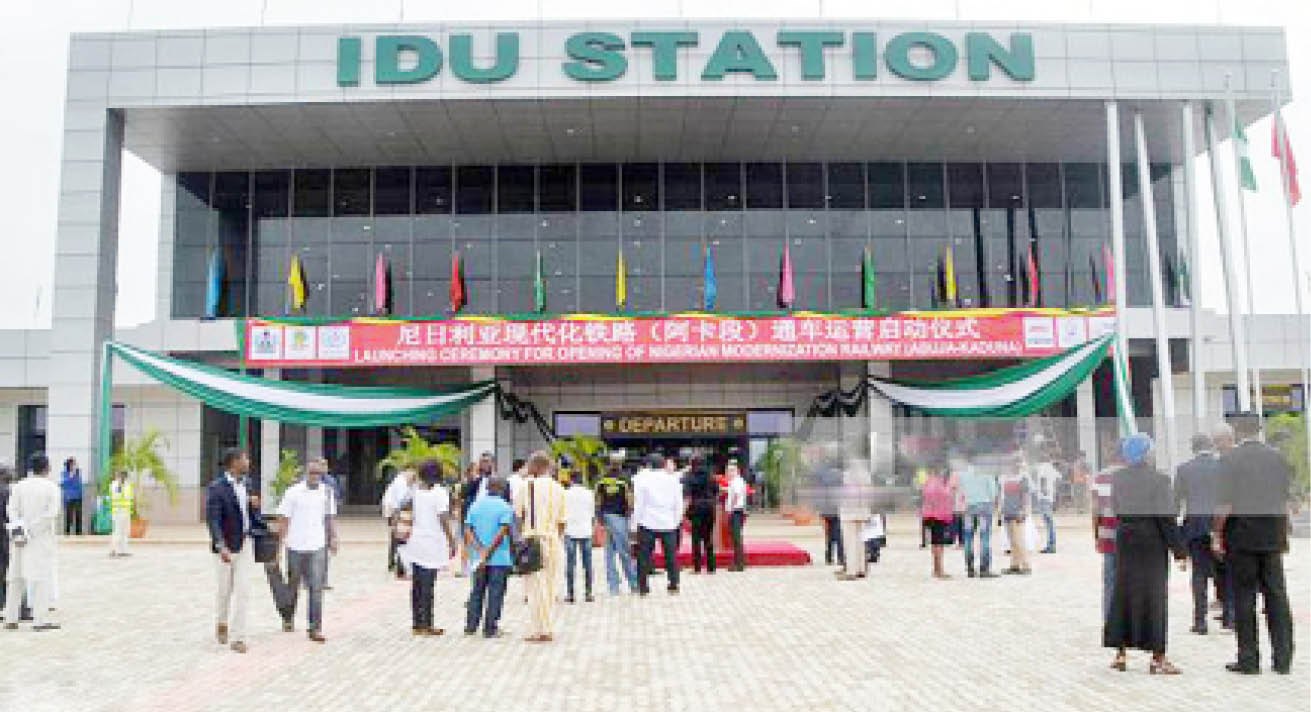Column No.6: Car, train or aeroplane: A Kaduna traveller’s dilemma
A close friend called me on Friday afternoon to ask about the Abuja-Kaduna highway, as I have been known in the past to frequent that…

Idu Railway Station
A close friend called me on Friday afternoon to ask about the Abuja-Kaduna highway, as I have been known in the past to frequent that route. He was calling because a colleague of his had flown into Abuja from Gombe, and needed to head home to Kaduna, and so he wanted to know if the road was currently safe. Or, you know, without recent incident of banditry. I told him I wasn’t sure, even though I had not heard of any incidents either. I asked why the friend couldn’t use the train service, and he told me quite simply, that the service is grounded due to an on-going strike.
A strike in Nigeria is not big news, even when services as crucial as the medical sector dip their toes in that pond, or when petrol distributors or transporters decide to air a grievance by ‘downing tools’. So I read up a bit on it, actually a three-day warning strike by workers of the Nigerian Railway Corporation (NRC), which has not left only Abuja-Kaduna passengers stranded, but also grounded train services nationwide. Before you raise a fist in outrage, ponder this: The workers simply want improved welfare. And who can argue with them? This is a rhetorical question, but I can bet you the Nigerian government can and will argue with them. And not only that, it would even wave it aside like it doesn’t matter. But here’s the thing: It matters.
- 5,000 IDPs get N500m from Zulum for resettlement
- Nigeria, Cameroon have achieved success in border dispute – Malami
Yes, a vibrant railway system is crucial to any economy, as even a newbie can tell you. But while we have not even scratched the surface of that utility point of the sector, the rail system’s more immediate usefulness today remains secure travel. Let me use the Abuja-Kaduna train service as an example. When incidents of banditry and kidnapping became ridiculously high, the trains saved the day by moving people to and from the two cities safely. Yes, it is rather elitist, with a ticket said to be priced above the ordinary Nigerian’s means (but that’s a topic for another day).
I read on, gleaning that the Nigerian Union of Railway Workers (NUR) and the Senior Staff Association (SSA) had jointly issued a statement that the warning strike will end on Saturday, which should be today. I actually laughed, because I was quite bemused. Here was a tough-talking body seemingly taking matters into its hands for the betterment of its industry, but only for a few days. Yes, they did say it would be a ‘warning strike’. But as far as warnings go, this is a friendly smile and a sly wink, and not the stern look and vicious growl the government should get for ignoring this all-too-crucial sector.
While the leadership of the two groups jointly said the on-going ‘strike action’ (inverted comas all mine) was to send a warning signal to the right quarters to heed their demands for improved welfare and standard conditions of service (take-home pay is ‘bad’ and needs an upward review), I couldn’t help but find the whole thing to be a snooze-fest. For goodness’ sake, ever-spiking insecurity has made trains the de facto way of travel for many in Nigeria where the service is available, like Lagos to Ibadan, and the always-in-the-news Abuja to Kaduna, and so on.
Then there are the frankly misguided concerns that the corporation would lose millions of naira because of the strike, which is a typically Nigerian way of thinking out things. Nobody seems to see the lack of sense in being concerned about the money which the government will lose, in favour of the lives which could potentially be lost. Negotiations between the NRC and the government, I learnt, deadlocked. That kind of disregard for a clamour to be heard beggars belief, especially when the minister whose onus it is to solve the problem is no other than Rotimi Amaechi, widely known to be a no-nonsense straight-shooter.
Another angle is that the NRC is selfish, and does not care about citizens for whom the service has become crucial in these trying times. But then again, it would be foolish to bargain for anything without a bargaining chip. And don’t forget that it is a sector which generates billions of naira—and not without great risk for its workers. That’s why I personally take that ‘NRC is selfish’ position to be foolish. Strikes, by their very nature, aren’t easy endeavours. There must be some sort of suffering endured in order for both sides to come out smiling and happy.
The leadership of the NRC need to ask themselves questions. What are they doing wrong? What should they do differently? Like, for example, maybe the strikes are not effective enough because they are not striking enough, pun unintended. Perhaps some thought outside the box would help, including an escalation from ‘warning strike’ to a peaceful demonstration. After all, a great, effective strike is known right from the point when it’s a warning. While I hope my observations and recommendations are not misread, I watch and wait with bated breath. Figuratively, of course. My friends – or their friends – can probably risk a road trip or two by car, and Nigerian bourgeoisie might even hop on a plane for short trips. It seems like a manageable dilemma.
